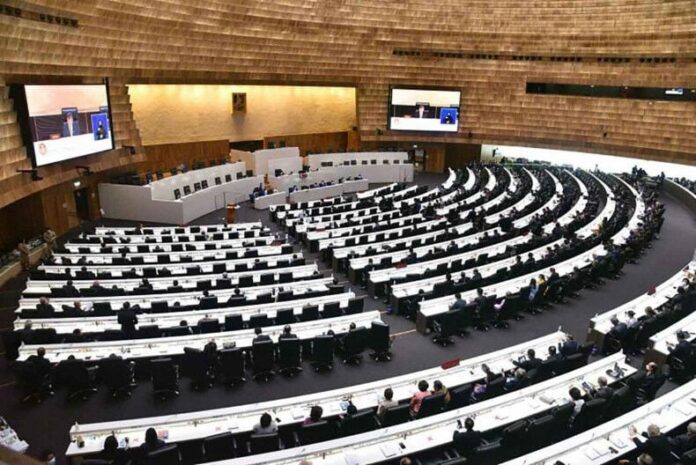A special House committee is urging the government to decide whether to include those who violated the lese majeste law in an amnesty bill following the death of Netiporn Saneysangkhom.
Nikorn Jamnong, chairman of the House sub-committee focusing on politically motivated cases, announced that the meeting addressed several key topics. Among these was the demand from Thalufah, a political group, to include individuals convicted under Section 112 of the Criminal Code in the proposed amnesty law.
The committee’s discussions covered the investigation into Netiporn’s death, the bail rights of those detained under Section 112, delays in legal proceedings, and the broader amnesty bill. The committee’s summary and opinions will be submitted to the government for consideration.
Nikorn stated that the majority of the House committee supported the establishment of an amnesty panel. This sub-committee should categorise actions and present them to the main House committee for a vote on whether the panel should function in an administrative capacity. The vote is scheduled for next Thursday.
House Speaker Wan Muhamad Noor Matha confirmed that parliament is prepared to discuss the amnesty bill during the regular session if it is brought forward.
Chaithawat Tulathon, leader of the Move Forward Party (MFP), mentioned that the special House committee is contemplating topics to forward to the government, including the release of political inmates.
Activists’ rights
Earlier comments from PM Srettha indicated that while some political inmate cases must be resolved by the court, the government can negotiate with the judiciary to find a solution if it has a clear policy focused on resolving political conflicts and restoring the rule of law.
Chaithawat also emphasised the importance of granting bail rights to political activists. He noted that police have recently been denying bail to those accused of violating Section 112, detaining them when summoned. Chaithawat argued that the PM should implement a clear policy for police to grant bail instead of deferring these decisions to the court, given that the police are under the premier’s direct supervision.
In addressing the death of Netiporn, Chaithawat clarified that the MFP never encouraged her to undertake a hunger strike. He added that the MFP had attempted to persuade activist Tantawan Tuatulanon to end her hunger strike as well, reported Bangkok Post.
“The right to bail can start with the police, but recently police aren’t allowing bail and detain those who are accused of violating Section 112 when they are summoned.
“For this type of case, the premier should have a clear policy for police to allow bail instead of leaving those decisions to the court as the police are directly under the supervision of the premier.”
The ongoing discussions and decisions surrounding the amnesty bill and the rights of political detainees remain a significant point of contention within the Thai government and amongst political activists.
Bangkok NewsCrime NewsPolitics NewsThailand News



